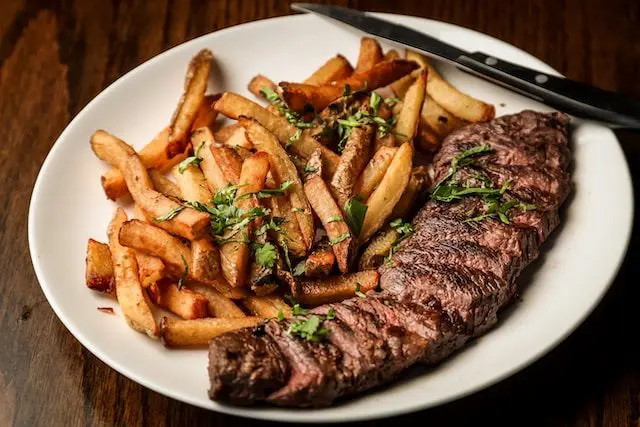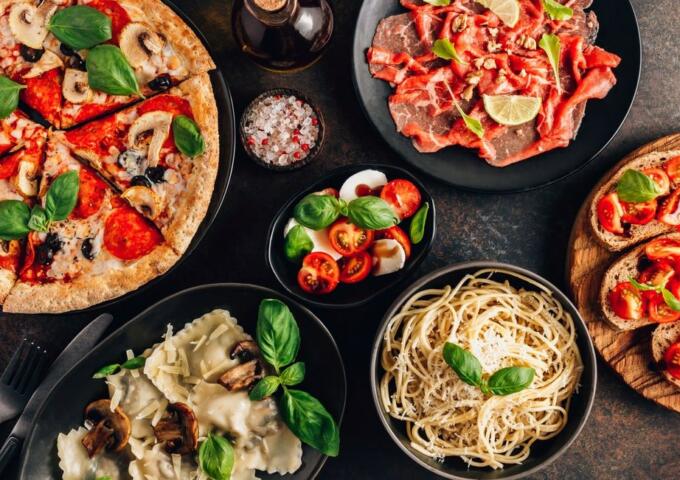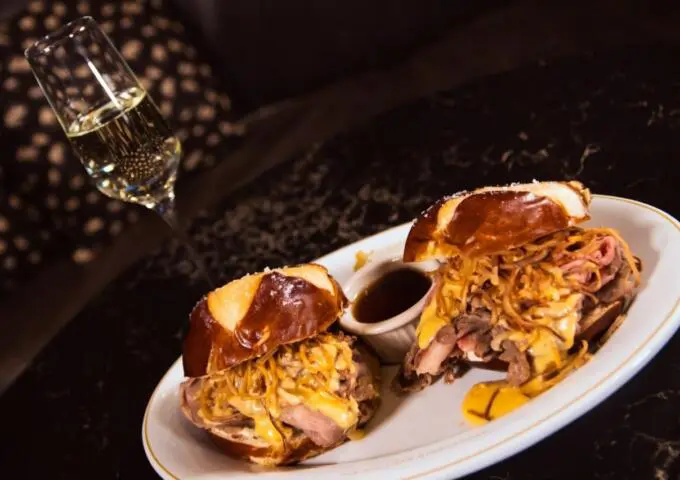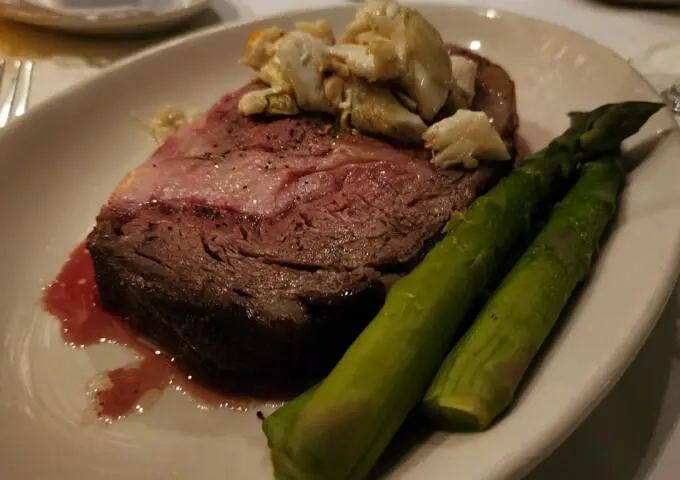
Anybody who’s been to the South Philadelphia Tap Room since April knows the new kitchen’s got game. Literally. The SPTR menu reads like roll call at the zoo: ostrich, boar, bear. All present and accounted for, in the form of kabobs, burgers and of course bacon.
Chef Michael Zulli, a former vegetarian, is the Capt. Noah of this scrappy ark. “I’m not doing game as a gimmick,” he says. “I like exposing people to ingredients and flavors that are interesting and unique.”
The Tap Room faithful picked up what Zulli was putting down, with barely a peep from gastropub’s herbivore contingent. The bison balls sat next to the seitan sloppy joe, and all was well. Till Zulli set his sights on the king of the jungle.
Simba for dinner? You lion.
“When I heard the Tap Room was serving lion, I actually laughed out loud because my first thought was Lionshead beer,” says Christine Stover, a Seattle transplant living in South Philly for the past five years. “When I called and found out it was actual lion, I could barely speak.” So the 37-year-old vegetarian hospital accountant wrote to the restaurant, requesting that SPTR remove lion from the menu.
Stover is a vegetarian–and a former fan of SPTR. “When I eat out, I have to pick certain places that accommodate vegetarians, and the Tap Room had always been a favorite.” During the summer she and her friends would meet up for a few pints before catching the subway to the Phillies game. No more.
“Why do we need to eat lion?” she wonders. “It seems like such a ridiculous indulgence.”
Stover’s letter was the first of many. “If people disagree with what I’m doing, I completely respect that,” says Zulli. “Tell me you’re upset. Let’s have a conversation.”
The conversation would entail Zulli explaining how he’s not “some weirdo with a spear.” The lions on the SPTR menu are African cats raised for human consumption on Fallows Farm in Illinois. The farm is federally inspected, and entirely legal. Zulli’s purveyor Lerae Derr didn’t return phone calls for this story.
“It’s illegal to sell hunted game,” says Sonny D’Angelo, the Italian Market’s resident butcher and exotic meat expert, “so the lion would have to be farm-raised, slaughtered and inspected.” D’Angelo used to sell lion meat eight years ago, but the considerable expense and poor quality of his lot–“like inferior veal with a strong cat-house-at-the-zoo flavor”–made carrying the meat no longer worth his while. Still, from an ethical standpoint, he sees no foul. “If the animal is raised for human consumption, I have no problem with it.”
For the dish, Zulli spices ground lion meat with cumin and scallion before sauteing the mixture in duck fat. The dark scraps of meat tangle atop a golden puff pastry raft filled with coconut rice. Some bites are tough and leathery. Others are buttery and tender.
The lion meat doesn’t have the aggressive flavor you might expect. Instead it takes on the taste of its sauce, a heady blend of yellow curry, saffron, cream and peppadew, a South African pepper.
The how-do-you-sleep-at-night phone calls to the restaurant became so overwhelming, Zulli eventually posted his cell number for SPTR employees to forward to dissenters with questions. “Only one person ever called,” he says.
“I know what [Fallows Farm and the South Philadelphia Tap Room] are doing is not illegal, but these lions are coming from somewhere and it’s not the United States,” says Stover, who spent last winter on safari and mountain climbing expeditions in Kenya and Tanzania. During her time in Africa she encountered only three lions, one male lion and two females, in the Ngorongoro Crater in the Tanzanian Highlands. “In the countries lions come from, people can’t find them,” she says.
According to the African Wildlife Foundation, it’s estimated there are fewer than 50,000 lions remaining in Africa from more than 100,000 two decades ago. Though hunting, habitat degradation and disease all contribute to the population decline, the most serious threat is retaliatory killing by local livestock farmers. In Tanzania 136 lions were killed by pastoralists in retaliation for livestock predation from 2004 to 2008.
However, the International Union for Conservation of Nature classifies African lions only as “vulnerable,” and the World Wildlife Fund doesn’t recognize them as an endangered species. (The African lion’s transcontinental cousin, the Asiatic lion, is in greater jeopardy.) “If the African lion was endangered, I would never, ever serve it,” says Zulli, “or support anyone who did.”
After the lion’s six-week-long stay on the SPTR menu, Stover’s wish has come true.
“I’m taking it off the menu,” says Zulli, but not because he feels he’s in the ethical wrong. “When my food stops becoming about the flavor, it’s just not worth it. It’s become a circus. No pun intended.”




